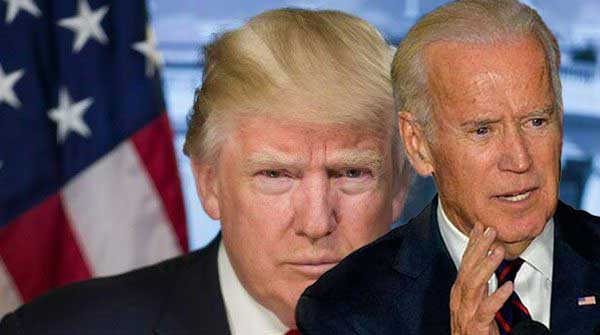Will Trump tighten the screws on Iran’s crude output if he wins?
 A lot is happening on the Iran-U.S. front, which could significantly impact global energy geopolitics. Both countries are influential players in the energy sector. The U.S., as the world’s largest economy and energy consumer, influences the policies of many nations. Defying the U.S. is challenging for any country, with Israel being an exception due to its unique influence on Capitol Hill.
A lot is happening on the Iran-U.S. front, which could significantly impact global energy geopolitics. Both countries are influential players in the energy sector. The U.S., as the world’s largest economy and energy consumer, influences the policies of many nations. Defying the U.S. is challenging for any country, with Israel being an exception due to its unique influence on Capitol Hill.
As the U.S. approaches the November presidential election, with Donald Trump favoured to replace the incumbent Joe Biden, the big question is whether Trump, if elected, would again opt to tightly squeeze Iranian crude output until Tehran changes its policies on Israel, Saudi Arabia, other Gulf Arab countries, and reins in Hezbollah in Lebanon and Houthi militia in Yemen.
Iran, with its output approaching four million barrels per day (bpd) – almost four percent of the total global crude output – is also a significant player in global energy. The country recently elected Masoud Pezeshkian as its new president. Pezeshkian, a cardiac surgeon by profession, is regarded as a reformist and moderate politician who favours reviving Iran’s nuclear deal and improving relations with the West. This raises the question of whether this could result in a rapprochement with the West.
 |
| More from Rashid Husain Syed |
| There is now no hope I will be able to switch to an EV
|
| Oil market bulls take charge, but will it last?
|
| Global oil demand to peak by 2029. IEA predicts major glut
|
The policies of the two potential U.S. leaders are crucial. During his term from 2016 to 2020, President Trump withdrew from the nuclear deal with Iran and increased pressure on Tehran, resulting in Iranian crude exports plummeting from more than two million bpd to less than 300,000 bpd by 2019. This severely impacted Iran’s primary source of revenue – oil sales. When Biden took office in 2020, there was a flicker of hope, but it remains unfulfilled. In the absence of any breakthrough on the issue of reviving the nuclear pact, the Biden administration has been intent on increasing sanctions.
The Biden administration has sanctioned hundreds of Iranian entities, ships, and individuals accused of transporting and selling Iranian oil. However, there is skepticism about whether these sanctions are being fully enforced, as the administration is wary of potential gas price increases in an election year. The situation could change after the U.S. elections, depending on the new president’s policies.
Meanwhile, Iran’s policy is also in for some major changes with its new president. There is growing discontent in Iran over the cost of sanctions. Hossein Selahvarzi, the former head of Iran’s Chamber of Commerce, stated that the sanctions have inflicted approximately $1.2 trillion in damages on the country between 2011 and 2023. He discussed the economic opportunities lost due to the sanctions, emphasizing the need for change. The new President – Masoud Pezeshkian – also criticized the current situation with the West.
Former Iranian President Hassan Rouhani stated that Iran has incurred an annual loss of around $100 billion over the past three years due to sanctions, which forced the country to sell limited amounts of oil and petrochemicals at discounted rates.
Yet despite the US-led sanctions, Iran has been able to increase crude exports since the imposition of full U.S. sanctions by the then-Trump administration in May 2019.
Iran’s crude oil and gas condensate exports have surged to 1.7 million bpd in May, hitting a 5-year high point. The oil analytics firm Vortexa is reporting that in the first five months of the year, Iran’s oil and gas condensate exports reached 1.65 million bpd. Iran’s customs statistics also indicate an increase in oil revenues by 34.8% year-on-year to $12 billion during the first three months of the current Iranian fiscal year, which started March 21.
Consequent to the increase in output, Iranian exports have also gone up. A report from data intelligence firm Kpler’s says that Iran exported 1.194 million bpd of crude oil and gas condensate in spring 2023. Therefore, the country’s oil exports increased by 30 percent in the second quarter of 2024, while oil prices in international markets rose only by about 7 percent during the mentioned period.
A Pakistani intelligence report leaked by Iranian media reveals that Iranian traders are smuggling more than $1 billion worth of fuel into neighbouring Pakistan annually. The report highlights a longstanding illegal trade that escalated following U.S.-imposed sanctions on Iranian oil exports a decade ago. Last year alone, approximately $1.02 billion worth of Iranian petrol and diesel was illegally transported into Pakistan, making up about 14 percent of Pakistan’s annual fuel consumption.
Iran is now confident that its oil exports will continue regardless of who is elected as the next U.S. president. Iranian Oil Minister Jawad Owji of the outgoing government told the Iranian press last month, “Whatever government comes to power in the United States will not be able to prevent Iranian oil exports.”
Energy geopolitics is about to undergo some major changes, depending on the chemistry between the two newly elected leaders in Tehran and Washington.
Toronto-based Rashid Husain Syed is a highly regarded analyst specializing in energy and politics, with a particular emphasis on the Middle East. In addition to his contributions to local and international newspapers, Rashid frequently lends his expertise as a speaker at global conferences. Organizations such as the Department of Energy in Washington and the International Energy Agency in Paris have sought his insights on global energy matters.
For interview requests, click here.
The opinions expressed by our columnists and contributors are theirs alone and do not inherently or expressly reflect the views of our publication.
© Troy Media
Troy Media is an editorial content provider to media outlets and its own hosted community news outlets across Canada.

